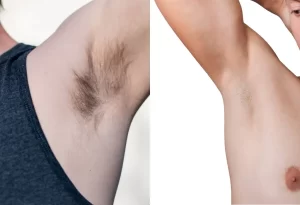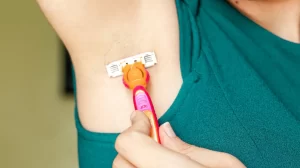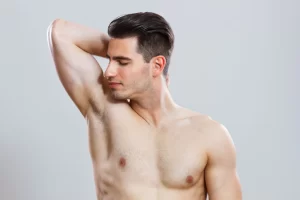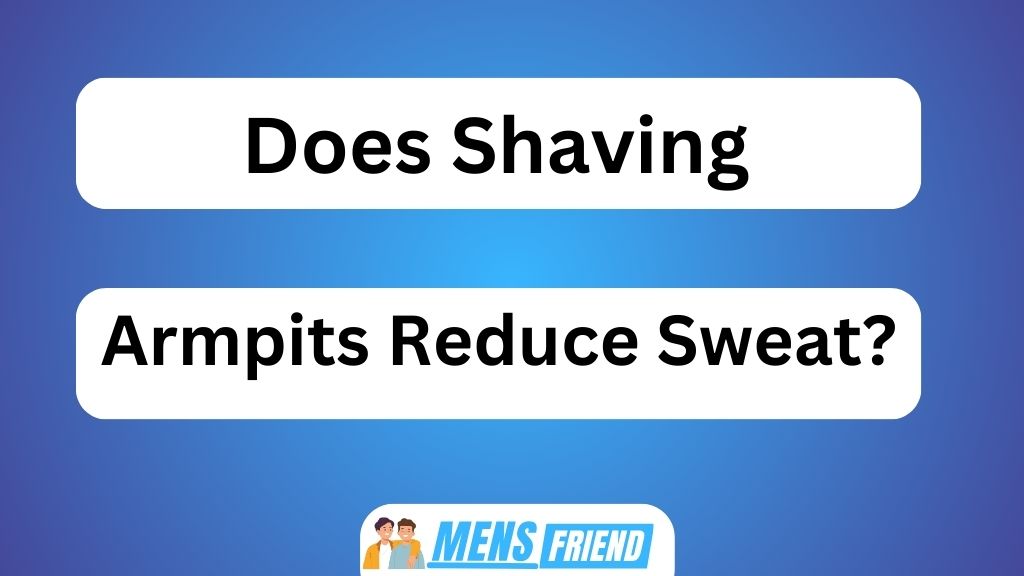The question of whether shaving armpits reduces sweat has been a topic of interest and debate among individuals seeking effective methods to manage perspiration. This article aims to objectively explore the relationship between shaving armpits and sweat reduction, considering scientific evidence and debunking common misconceptions.
By examining the effectiveness of this practice in decreasing sweat, as well as exploring alternative approaches, readers will gain a comprehensive understanding of the subject matter. Additionally, practical tips for maintaining sweat-free underarms post-shaving will be provided.
Key Takeaways Does Shaving Armpits Reduce Sweat
- Armpit hair can trap sweat and create an environment for bacterial growth, leading to body odor.
- Shaving armpits may decrease bacteria and body odor by eliminating the hair that traps sweat.
- Shaving does not significantly affect overall sweat production, which is primarily regulated by factors such as body temperature, hormonal changes, and physical activity.
- Other alternatives such as natural remedies and proper hygiene, including the use of antiperspirants, can also help manage sweat levels after shaving.
The Science Behind Shaving Armpits and Sweat Reduction
The relationship between shaving armpits and sweat reduction is a subject of scientific inquiry. Understanding the role of deodorants and the impact of hormonal changes on sweat production can provide insights into this relationship.

Shaving the armpits removes hair, which can trap sweat and create an environment for bacterial growth. Bacteria break down the proteins in sweat, producing odor. Therefore, removing hair through shaving may reduce the amount of bacteria present in the underarm region, leading to decreased body odor.
However, it is important to note that shaving alone may not significantly decrease overall sweat production. Hormonal changes during puberty and menopause can increase sweat production regardless of whether or not armpit hair is present. Thus, while shaving may contribute to reducing body odor by removing a potential breeding ground for bacteria, it may not directly affect sweating itself.
Understanding the Relationship Between Armpit Hair and Sweat
One aspect to consider when examining the relationship between armpit hair and sweat is understanding the impact of hair density on perspiration. Armpit hair can affect sweat production and odor due to its ability to trap moisture, bacteria, and other substances that contribute to body odor.

However, cultural norms and personal preferences play a significant role in deciding whether or not to shave armpits. Cultural norms vary across different societies, with some valuing armpit hair as a symbol of beauty or a way to express individuality, while others prefer it to be shaved for hygiene reasons or societal expectations. Personal preferences also influence the decision, with factors such as comfort, aesthetics, gender norms, and personal beliefs playing a role in shaving choices. The following table illustrates some cultural norms and personal preferences related to armpit hair:
| Cultural Norms | Personal Preferences |
|---|---|
| Some cultures value armpit hair | Preference for smooth/shaved underarms |
| Armpit hair seen as natural/beautiful | Desire for cleanliness/hygiene |
| Symbol of femininity/masculinity | Aesthetics/fashion trends |
| Expression of individuality | Personal comfort/preference |
Understanding these factors is crucial in comprehending the complex relationship between armpit hair and sweat regulation.
Debunking Myths: Does Shaving Armpits Really Reduce Sweat
Debunking the myth surrounding the impact of removing underarm hair on perspiration levels requires a comprehensive analysis of scientific evidence. There are popular misconceptions about shaving armpits and its potential effect on sweat reduction.

Some individuals believe that removing underarm hair can decrease sweat production, leading to drier underarms. However, scientific studies have shown that the presence or absence of underarm hair does not significantly affect the amount of sweat produced by the axillary glands. Sweat production is primarily regulated by factors such as body temperature, hormonal changes, and physical activity.
The cultural and societal implications of armpit hair removal for sweat reduction are subjective and vary across different cultures and societies. While some may perceive smooth underarms as more aesthetically pleasing or hygienic, it is important to recognize that these views are influenced by societal norms and personal preferences rather than objective scientific evidence.
The Effectiveness of Shaving Armpits in Decreasing Sweat
Examining the effectiveness of removing underarm hair in reducing perspiration levels requires a scientific analysis of existing evidence.
Studies have investigated the impact of gender on the effectiveness of shaving armpits in decreasing sweat, as well as the role of genetics in armpit hair growth and sweat production.

Research suggests that shaving may reduce sweat accumulation by eliminating an environment for bacteria to thrive, which can contribute to odor and excessive sweating. However, results regarding gender differences are inconsistent, with some studies showing a greater reduction in sweat for women after shaving while others find no significant effect.
Additionally, genetic factors play a crucial role in both hair growth and sweat production, suggesting that individual variation should be considered when evaluating the effectiveness of shaving armpits in decreasing sweat.
Further research is needed to better understand these complex relationships.
Exploring Alternatives: Are There Other Methods to Reduce Sweat
When considering alternatives to reduce perspiration levels, it is important to explore other methods that have been studied and evaluated in scientific research.
While shaving armpits has been suggested as a potential method to decrease sweat production, there are also natural remedies and dietary factors that may play a role in reducing excessive sweating.
Natural remedies such as sage tea or witch hazel have been traditionally used for their astringent properties and can potentially help constrict the sweat glands.
Additionally, certain foods such as spicy foods, caffeine, and alcohol have been implicated in increasing sweat production, while others like fruits and vegetables with high water content may help maintain hydration levels and regulate body temperature.
Further research is needed to fully understand the impact of diet on sweat production and identify effective natural remedies for reducing sweat.
Tips and Tricks for Keeping Armpits Sweat-Free After Shaving
Maintaining proper hygiene and using antiperspirants are effective strategies for managing sweat levels in the armpit area after hair removal. It is important to keep the armpits clean and dry to prevent excessive sweating and unpleasant odors.
Here are some tips and tricks for keeping armpits sweat-free:
- Use a gentle cleanser or soap to wash the armpits daily.
- Dry the armpits thoroughly after bathing or showering, as moisture can contribute to increased sweating.
- Apply an antiperspirant containing aluminum chloride or aluminum zirconium to reduce sweat production.
- Consider using natural remedies such as witch hazel, baking soda paste, or tea tree oil as alternative options.
Frequently Asked Questions
What Is the Best Method for Shaving Armpits to Reduce Sweat?
The best method for reducing sweat through shaving armpits can vary depending on individual preferences and needs. Some alternatives to consider include using natural remedies such as applying antiperspirants or using certain types of deodorants.
How Long Does It Take for Sweat Reduction to Occur After Shaving Armpits?
Shaving armpits can potentially affect body odor and may increase the risk of skin irritation. However, without considering the context of sweat reduction, it is necessary to further investigate the specific effects and timeline associated with shaving armpits.
Can Shaving Armpits Cause Any Negative Side Effects?
The question of whether shaving armpits can cause negative side effects is an important one. There are common misconceptions about the relationship between shaving and sweat reduction that need to be addressed in order to provide a thorough and objective analysis.
Does the Length of Armpit Hair Affect the Effectiveness of Sweat Reduction?
The impact of armpit hair length on sweat reduction and the correlation between armpit hair and body odor have been investigated. Research findings suggest a potential relationship, warranting further scientific exploration in this area.
Are There Any Specific Products or Treatments That Can Be Used in Conjunction With Shaving Armpits to Further Reduce Sweat?
Products and natural remedies can be used in conjunction with shaving armpits to further reduce sweat. These may include antiperspirants, deodorants, talcum powder, and home remedies such as apple cider vinegar or witch hazel.
Conclusion
In conclusion, the scientific evidence surrounding the relationship between shaving armpits and reducing sweat remains inconclusive. While some studies suggest that shaving may have a minimal impact on sweat reduction, others argue that it does not significantly affect sweating. More research is needed to fully understand this complex interaction between armpit hair and sweat production.
In the meantime, individuals seeking to manage excessive underarm sweating should explore alternative methods such as antiperspirants or medical treatments. Keeping armpits clean and dry after shaving can also help maintain a sweat-free environment.



